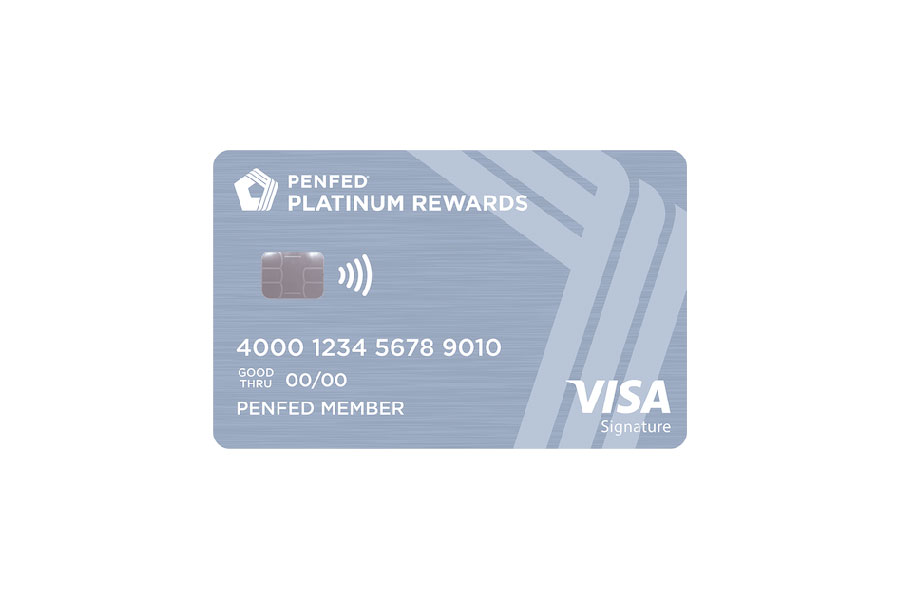One late payment or a maxed-out card can hurt your credit score, but those aren’t the only mistakes to watch for. Some actions can cause lasting damage that takes years to repair.

This guide breaks down the most serious threats to your credit score, explains why they matter, and shows you how to protect yourself.
Major Credit Score Killers
These are the credit mistakes that cause the steepest drops, often 100 points or more, and take the longest time to recover from.
1. Bankruptcy
Declaring bankruptcy can be one of the hardest hits to your credit score. A Chapter 7 bankruptcy usually stays on your credit report for up to 10 years, while Chapter 13 bankruptcy remains for up to 7 years. In both cases, the immediate impact can be a drop of 100 points or more, depending on your starting credit score.
The reason bankruptcy is so damaging is that it signals to lenders that you were unable to repay your debts in full. It wipes the slate clean in many ways, but leaves a major mark on your credit history.
To begin rebuilding after bankruptcy:
- Open new credit carefully: A secured credit card or credit-builder loan can help you re-establish positive payment history.
- Keep balances low: Use only a small portion of your available credit to show responsible use.
- Pay every bill on time: Payment history carries the most weight in your credit score, so consistency matters.
While recovery takes time, many people are able to build their credit score back into the “good” range within a few years by using credit responsibly after bankruptcy.
2. Foreclosure, Short Sale, or Deed in Lieu
Losing a home through foreclosure or similar processes can severely damage your credit score. A foreclosure typically drops a credit score by more than 100 points and stays on your credit report for up to 7 years.
A short sale or deed in lieu of foreclosure may cause slightly less damage but still lowers your credit score significantly. These options are sometimes used to avoid the harsher impact of a full foreclosure, yet they still reflect an inability to repay debt as agreed.
Steps to recover after foreclosure or short sale include:
- Maintain current payments: Keep all other accounts in good standing to prevent further damage.
- Rebuild with smaller credit products: Secured credit cards or installment loans can help establish new positive history.
- Focus on stability: Lenders look for consistent, on-time payments across several years before granting major credit again.
3. Debt Settlement
Settling a debt for less than the full balance may help you get out of a financial bind, but it lowers your credit score because lenders view it as a sign you couldn’t repay what you owed. The drop is not usually as severe as bankruptcy or foreclosure, but it can still be significant, especially if multiple accounts are settled.
A debt consolidation loan is sometimes a better path, since it pays off your credit cards in full while giving you a new installment loan with a more manageable payment. While your credit score may dip slightly from the hard inquiry, paying down your balances quickly can improve your credit score over time.
If you choose settlement, monitor your credit reports closely to confirm that the accounts are reported as “settled” or “paid,” not left open or delinquent.
4. Student Loan Default
Defaulting on student loans can be devastating because these accounts are often large, long-term debts that weigh heavily in your credit history. Federal student loans are reported as delinquent once they are 90 days late, and default occurs after 270 days without payment. Private student loans may enter default even sooner.
A student loan default can lower your credit score by 80 to 100 points or more, and it will remain on your credit report for up to 7 years. Unlike other types of debt, federal student loans are rarely discharged in bankruptcy, which makes recovery more difficult.
Ways to recover from student loan default include:
- Loan rehabilitation: Make a set number of on-time payments under a rehabilitation plan to bring the loan back into good standing.
- Loan consolidation: Combine defaulted loans into a new loan, which gives you a fresh start but may extend repayment.
- Consistent on-time payments: After resolving the default, continue making every payment on time to rebuild positive history.
Moderate Credit Score Hits
These issues usually drop a credit score between 30 and 100 points. The damage is serious but recoverable with consistent positive habits.
5. Missing Payments
Payment history makes up 35% of your credit score, so missed payments hit hard. A payment that is 30 days late can lower a strong credit score by 60 to 80 points, while a 90-day late payment can do even more damage. Negative marks stay on your credit report for up to 7 years.
To prevent late payments:
- Set up autopay: Automate at least the minimum due.
- Use reminders: Calendar alerts or app notifications keep you from forgetting.
- Communicate with lenders: Some may grant a grace period if you call before the due date.
6. Collections and Charge-Offs
When a debt goes unpaid long enough, it may be sold to a collection agency or written off as a charge-off. Both appear on your credit report for up to 7 years. Recent medical debt rules have softened the impact, but other types of collections still drag down your credit score.
Ways to lessen the damage include:
- Dispute inaccurate accounts: Errors are common and can be removed if proven wrong.
- Pay or negotiate settlements: Paid collections are viewed more favorably than unpaid ones.
- Request removal: Some collectors agree to delete the account after full payment, known as “pay for delete.”
7. Maxing Out a Credit Card
Your credit utilization ratio makes up 30% of your credit score. If you max out a card, your utilization spikes, and your credit score can drop by 50 to 100 points. Even if you make payments on time, high utilization suggests you are overextended.
Simple ways to improve utilization:
- Keep balances under 30%: Below 10% is even better.
- Spread purchases across multiple cards: Prevents any one card from looking maxed out.
- Request higher limits: More available credit lowers your ratio if balances stay the same.
8. Exceeding Your Credit Limit
Going over your credit limit looks worse than just high credit utilization. It shows lenders you are stretching beyond your approved terms. Some issuers also add fees or reject charges when you exceed the limit.
To avoid this:
- Track balances frequently: Many issuers update balances in real time through apps.
- Turn on account alerts: Receive notifications when spending approaches a set threshold.
9. Cosigning Gone Wrong
When you cosign a loan, you share full responsibility. If the other person misses payments, those late marks hit your credit report too. Lenders see you as equally liable for the debt.
If you have already cosigned, protect yourself by:
- Monitoring the account: Many lenders let cosigners access online statements.
- Having a backup plan: Be prepared to step in if the borrower can’t make payments.
- Exploring cosigner release: Some loans allow you to remove your name after a certain number of on-time payments.
10. Evictions and Wage Garnishments
While not always reported directly by credit bureaus, evictions and wage garnishments can still affect your credit file. Landlords or creditors may send the debt to collections, and that negative account will appear on your credit report for up to 7 years.
To protect your record:
- Work out repayment terms early: Many landlords or creditors prefer partial payment plans over escalation.
- Seek legal aid if needed: Some states provide resources for tenants or workers facing these actions.
11. Debt-to-Income Ratio Concerns
Your debt-to-income ratio does not directly impact your credit score, but it influences loan approvals. If lenders see that most of your income already goes toward debt, they may deny applications even if your credit score looks strong.
Keeping your debt manageable ensures both your credit score and your borrowing capacity remain healthy.
Minor Credit Score Dings
These mistakes usually cause small drops, often 5 to 30 points, and the effects fade quickly if you maintain healthy habits.
12. Hard Inquiries
A hard inquiry happens when you apply for new credit and the lender checks your credit report. Each one typically lowers your credit score by fewer than 5 points. Multiple inquiries for the same type of loan, like a mortgage or auto loan, count as one if done within a short window, usually 14 to 45 days.
To minimize the effect of hard inquiries, avoid unnecessary applications and do your rate shopping within the same period.
13. Applying for Too Many New Accounts
Opening several accounts at once does more than trigger inquiries. It also lowers your average account age, which makes up part of your credit score. Lenders may see too many new accounts as a sign you are relying too heavily on credit.
Space out applications and only open accounts that add real value to your financial life.
14. Refinancing Loans
Refinancing can help you save money, but it also shows up as a new account with a hard inquiry. The short-term dip is usually small, and the benefits often outweigh the initial drop if you lower your interest rate or monthly payment.
As long as you continue paying on time, your credit score typically recovers quickly after refinancing.
15. Closing Credit Cards
Closing a credit card reduces your available credit, which can increase your credit utilization ratio and lower your credit score. It may also shorten your average account age.
If you must close a card, consider doing so only after paying down balances on other accounts. Keep older cards open if possible, even if they are used only for small recurring charges.
16. Closing Your Oldest Account
Shutting down your oldest card hurts more than closing a newer account because it shortens your overall credit history. Since length of history is part of your credit score calculation, keeping that account open is often the smarter move.
If fees are the reason you want to close it, call the issuer to ask about no-fee options instead of canceling outright.
17. Inactive Accounts
Accounts that sit unused for a long time may eventually stop reporting to the credit bureaus. This can shrink your active credit history and slightly lower your credit score.
To keep accounts active, make a small purchase every few months and pay it off right away.
18. Too Few Credit Accounts
A thin credit profile limits your credit score because you don’t have enough data for lenders to evaluate. Credit mix makes up about 10% of your score, so having both revolving accounts, like credit cards, and installment accounts, like loans, helps build a stronger profile.
If your file is too thin, consider a secured credit card or a small personal loan to add diversity.
19. Too Many Authorized User Accounts Without Primaries
Being an authorized user on someone else’s account can help if that account is managed well, but relying too heavily on authorized user accounts without having your own primary accounts makes your profile less reliable. Lenders want to see you managing credit on your own.
Focus on opening and maintaining accounts in your own name while keeping a few authorized user accounts for added history.
20. High Balances Reported Before Payment
Even if you pay your credit card in full each month, your credit card issuer usually reports your balance to the credit bureaus on the statement closing date, not the due date. If your balance is high on that day, it can temporarily spike your utilization ratio and lower your credit score.
To prevent this, make an extra payment before the statement closes or spread your spending across multiple cards to keep balances lower when they’re reported.
Overlooked Mistakes and Reporting Issues
These problems don’t always get the same attention as late payments or collections, but they can still weigh down your credit score if left unchecked.
21. Credit Report Errors
Credit report errors are more common than most people think. They may include duplicate accounts, incorrect balances, or accounts that don’t belong to you. Even small mistakes can affect your credit score and your ability to qualify for loans.
Check your credit reports from all three credit bureaus regularly. If you spot an error, dispute it directly with both the credit bureau and the creditor that reported the information.
22. Identity Theft and Fraudulent Accounts
If someone opens accounts in your name, the negative activity will appear on your credit report until it is disputed and removed. Identity theft can drag down your credit score quickly and cause problems with future applications.
Monitor your accounts closely for unfamiliar charges and consider a credit freeze if you believe your identity has been compromised. Prompt action is the best way to limit damage.
23. Unpaid Utility, Rent, or Cell Phone Bills
Small bills are easy to overlook, but unpaid balances can get sent to collections just like credit card or loan debt. Once in collections, these accounts stay on your credit report for up to 7 years.
To avoid this, pay these bills on time or set up automatic payments to prevent missed due dates.
24. Frequent Balance Transfers
While balance transfers can help manage high-interest debt, doing them too often may raise concerns. Each transfer may come with a new inquiry and account opening, which can lower your credit score. Lenders may also view frequent transfers as a sign of financial strain.
Use balance transfers sparingly, and only when they provide clear savings.
25. Settled Accounts Not Updated Properly
Sometimes, after negotiating or paying off a debt, the creditor fails to update your credit report correctly. An account that should show as “paid” or “settled” may still display as delinquent. This reporting error can hold your credit score down unnecessarily.
Always confirm with both the creditor and the credit bureau that your accounts reflect their correct status after settlement or payoff.
How to Protect Your Credit Score
The best way to avoid credit score drops is to build strong habits that prevent problems before they appear on your credit report. A few simple practices can make a big difference over time.
- Pay every bill on time: Even one late payment can cause lasting damage.
- Keep credit card balances low: Aim to use less than 30% of your available credit, and under 10% if possible.
- Spread spending across accounts: Prevents any single card from looking maxed out.
- Limit new applications: Apply for credit only when you truly need it.
- Keep older accounts open: Longer history supports a stronger credit score.
- Check your credit reports regularly: Use AnnualCreditReport.com to spot errors or fraud early.
- Consider starter products if rebuilding: Secured credit cards and credit-builder loans can help you establish new positive history.
Final Thoughts
Your credit score reflects how you manage debt, and every action—big or small—contributes to the picture lenders see. While the most damaging mistakes can set you back for years, even minor habits like keeping balances low or paying before the statement closes make a noticeable difference over time.
The key is consistency. If you focus on paying on time, keeping balances under control, and monitoring your credit reports, you’ll not only avoid costly mistakes but also build a credit score that opens the door to better rates and financial opportunities.




